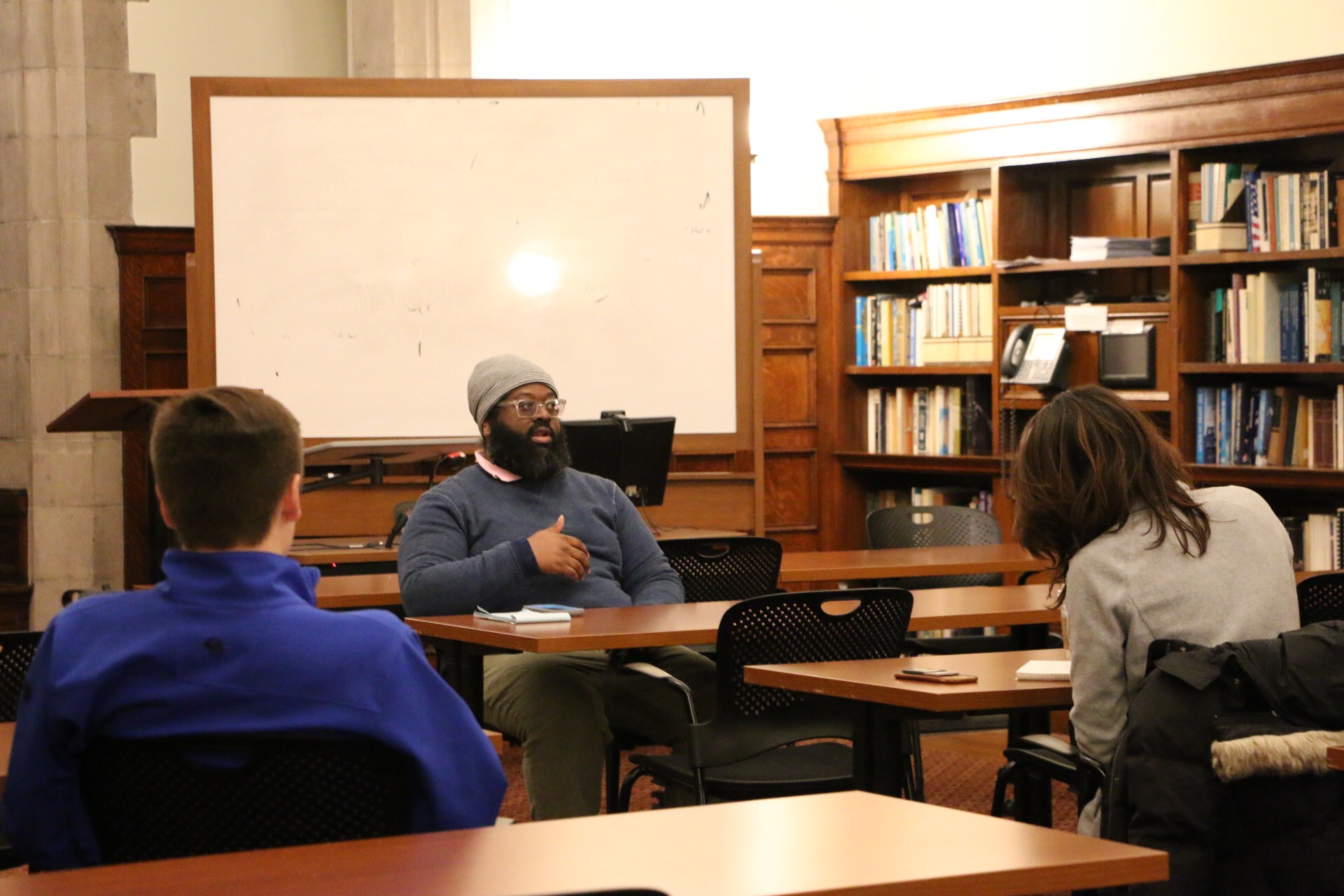Students express concern over proposed changes to Title IX
December 7, 2018
On Tuesday, six students sat in the Pickering Room of Hubbard Hall with Benje Douglas, director of gender violence prevention and education, to discuss the changes to Title IX put forth by U.S. Secretary of Education Betsy DeVos and to voice concerns about how these changes could affect college campuses like Bowdoin.
Title IX guidelines are part of Higher Education Law that prohibits institutions from discriminating based on sex or, as it is applied at Bowdoin, gender. When harassment or assault is reported on campus, the College is required to respond to it. Survivors can elect to either utilize an alternative resolution or pursue an investigation.
Currently, investigations following Title IX guidelines have three components on campus. The first is that both students are provided a supporter or advisor if they so choose. The second is that independent investigators are contracted in order to determine if the accused is responsible. Finally, both parties have the right to appeal the sanctions determined by Bowdoin’s sexual misconduct panel if the accused is found responsible.
According to Douglas, the biggest change students are likely to observe in terms of the investigation process is the discontinuing of the single investigator model in favor of hearings containing cross-examination proceedings.
The single investigator model, which Bowdoin currently employs, refers to the use of a single outside investigator to determine whether the accused is responsible for an assault. Cross-examination involves questioning both survivor and accused in order to gather first-hand testimony, similar to the system employed in the criminal justice system.
The room grew increasingly tense as students navigated how to tactfully express their concerns about the new guidelines.
A sophomore in attendance asked Douglas how he anticipated these proposed changes would affect campus. Douglas answered that although some of the standard procedures currently utilized when dealing with a report may change, he does not expect any changes in the College’s attitude towards reporters of misconduct.
However, he said that “Bowdoin does not intend to change its definition of consent or sexual assault.”
Jenna Scott ’19 asked about the primary concerns students have been fielding to Douglas so far.
He said students fear that the altered guidelines have the potential to retraumatize survivors during cross examination, reduce the number of assaults reported and let institutions of higher education “off the hook” when it comes to sexual harassment.
Douglas said that he had similar concerns, especially pertaining to a potential decline in the proportion of incidents that are officially reported.
Faculty—like academic advisors and coaches—are mandated reporters. This means that when they are alerted by students of instances of sexual violence, they are required to report said instances to the Office of Gender Violence Prevention and Education on campus. Under the proposed guidelines only certain faculty members, such as Douglas, would be required to report a case of harassment or assault when they are made aware of it. Douglas reiterated that unless otherwise forced, he anticipates Bowdoin to do more than the bare minimum, keeping all faculty as mandated reporters.
Another student cited concerns as to how Bowdoin will deal with assault that students experience during a geographical change, such as off-campus study. Douglas could not provide a concrete response, as this remains unclear, but he believes there will be guidelines formed to deal with harassment cases occurring off campus.
Individuals have 60 days to leave an official comment about the proposed guidelines, and Douglas encouraged all students that have a strong stance on the matter to do so. He advised that students fully read and comprehend the proposal before submitting comments by early January. Douglas described commenting on the proposal as “a civic duty” and as another way we “see our democracy in action.”
To make a comment, students should seek out the link included in President Clayton Rose’s email from November 19 or visit the Department of Education website.
Once students had exhausted all of their questions for Douglas, he shared parting words that left those in attendance feeling hopeful, reminding students that Bowdoin’s main concern is and will continue to be providing a safe and productive learning environment to all students.
“We are a strong institution with good bones and really powerful leadership,” he said.


Comments
Before submitting a comment, please review our comment policy. Some key points from the policy: